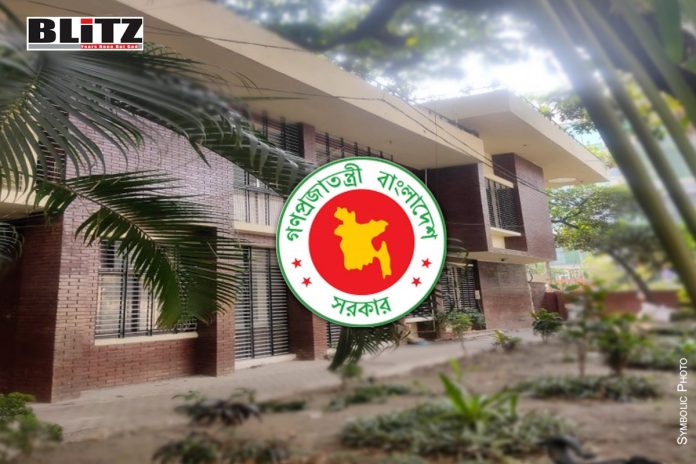In a surprising turn of events, a luxurious property located in the elite Gulshan area of Dhaka has been transferred into private ownership, sparking outrage and accusations of nepotism. The property, a two-storey building on House No. 6, Road No. 98, CEN (C) Block, Gulshan-2, Dhaka, with a substantial land area of 1 bigha 5 katha 10 chtak, is estimated to have a current market value of around Tk 400 crores. The Ministry of Housing and Public Works is at the center of the controversy, as it allegedly orchestrated the transfer without considering the significant financial losses to the state.
The property’s history dates back to the pre-independence era when it belonged to Nawab Wazi Ullah, an influential figure. However, after the liberation war in 1971, the house was declared abandoned by Presidential Order (PO-16/72) and subsequently gazetted as Public Works in 1973. Despite a legal battle led by caretaker KP Azgar Ali, the property remained unfulfilled, and its possession continued to be in dispute.
After 47 years, the sudden resolution of the property dispute has raised eyebrows, especially due to the disappearance of related documents and the swift four-month process leading to the transfer of ownership. The controversial transfer has triggered tensions between the officers and employees of the Capital Development Authority (RAJUK) and the Ministry of Public Works, with allegations of favoritism and lack of transparency.
Historically, Gulshan, once known as Bhola village, underwent transformation in the early 1960s when it was acquired by G. A. Madani, the first chairman of Dhaka Improvement Trust. The planned residential area was named Gulshan, modeled after an elite area in Karachi. The property in question has a longstanding history, with ownership disputes dating back to the post-independence period.
The property’s exclusion from the abandoned list in the gazette of the Ministry of Works in 1986 and 1988 is considered highly unusual. The High Court Division had declared the property unlisted as abandoned in 1976, but it did not follow the typical pattern of an appeal by the Ministry of Works. Sources claim that such an exclusion based on a single case’s judgment is unprecedented in the country.
The controversy deepened when it was revealed that the Ministry of Works sent a letter to RAJUK, inquiring about the property, despite it being delisted from RAJUK based on a policy decision. An assistant director of RAJUK expressed confusion over the Ministry’s involvement, stating, “The way the Ministry of Works has sent us a letter regarding this house, there is no precedent of such a letter being given by the Ministry in the past.”
The mysterious circumstances surrounding the transfer have fueled suspicions of lobbying by the upper class and influential individuals. The assistant director pointed out that the house’s exclusion from RAJUK’s list is not crucial; instead, the focus should be on whether it was gazetted as abandoned property in 1973. The Ministry of Works, however, provided a directive to leave the property in private ownership, creating further confusion and skepticism.
The letter instructing the transfer was issued by Abhijit Roy, Deputy Secretary at the Ministry of Housing and Public Works. When questioned about the decision, Roy mentioned that he is a junior employee and acted based on orders from above. The lack of transparency and clarity surrounding the decision has intensified public concern and demands for accountability.
Residents of the Gulshan area, who are familiar with the property as the “White House,” describe it as a non-Bengali house. Attempts to contact the new owner, KP Azgar Ali, were unsuccessful, as he declined to speak to the media. Security measures around the property have heightened, and even after multiple attempts, access to the house and its owner was denied.
Efforts to seek clarification from Chairman of RAJUK, Md. Anisur Rahman Mia, were also unsuccessful, as he remained inaccessible, claiming to be busy. The Secretary of the Ministry of Housing and Public Works, Kazi Washi Uddin, stated that he has no information about the controversial transfer.
The lack of cooperation from key officials involved in the decision, combined with the sudden and controversial nature of the property transfer, has fueled suspicions of corruption and misconduct. As calls for a thorough investigation grow louder, the public is left questioning the motives behind this hasty and questionable transfer of a prime piece of real estate in the heart of the capital. The controversy highlights the urgent need for transparency, accountability, and a fair and just legal process to address the concerns of the citizens and uphold the rule of law.




